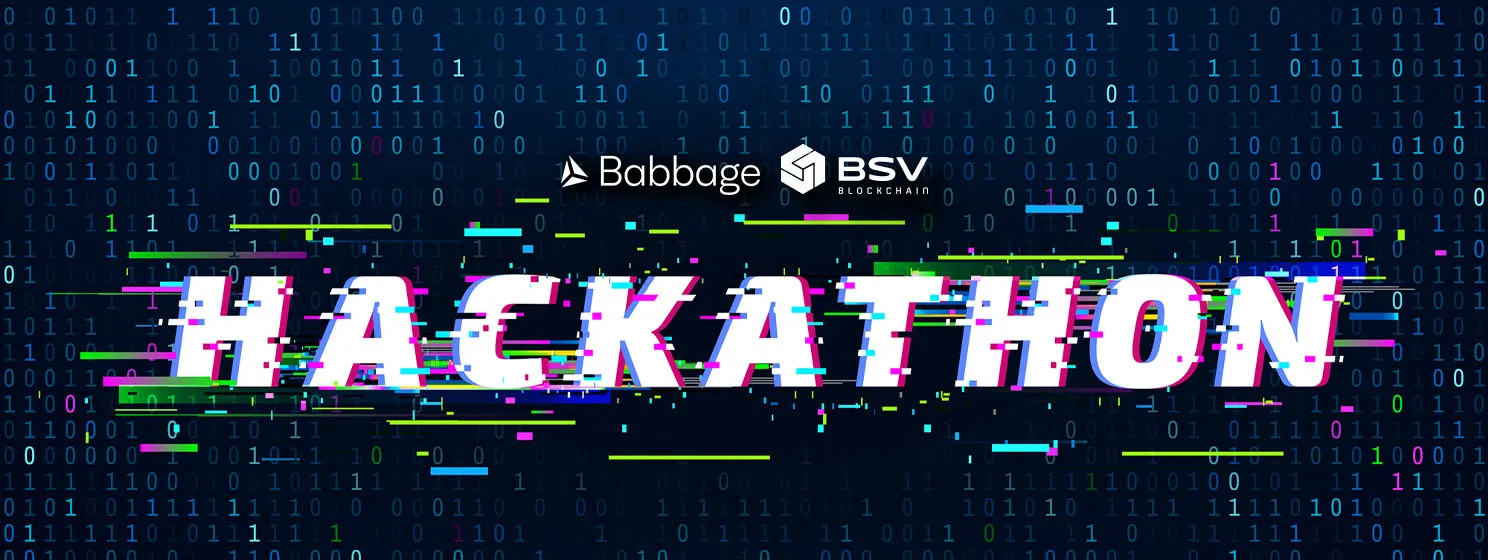|
Getting your Trinity Audio player ready...
|
A bounty manager for GitHub users, games, wallet identity managers, on-chain voicemail and a versatile new token protocol were among the winners of the BSV Hackathon in Austin, Texas, last week. The two-day in-person event asked developers to push new boundaries with scalable blockchain capabilities, showing innovative ways to manage identities and create new economic opportunities for Web3.
Babbage and the BSV Association were the BSV Hackathon‘s main sponsors, along with Silverline. The total prize pool came to US$64,000, including minor prizes for teams placed 4th to 6th. The winner (GitPaid/GitSats – more on that name below) received $30,000, 2nd placer Cookies got $15,000, and 3rd-placed ChainGames won $10,000.
The company had stated it was looking for projects that leveraged multiple features of the BSV blockchain network, ideally using tools from Babbage’s software stack. The result was entries using identity verification, overlay networks, micropayments, tokens, and the Metanet protocol.
Over 30 people participated in the BSV Hackathon, representing 13 project teams. Babbage set a hard deadline on Sunday morning for projects to be finished enough to present to the four-person judging panel. In the spirit of hackathons, this saw several coders staying awake all night to get everything done.
“There were a few people who stayed up all through the night, that’s insane. Props to you guys, that’s what it takes,” said Babbage CEO Ty Everett at the judging session.
The entire BSV Hackathon Day 2, including the teams’ presentations before the judges, was livestreamed from the venue (Texas Sake Co.). The audio is a little rough, but if you’re curious to hear the details of all the projects that competed, the presentations begin around the 02:25:15 mark:
About the BSV Hackathon winners
The additional three prizewinners were SMB BSV, BetaBOLT, and P2P-Voicemail. BOLT stands for “Bitcoin Original Layer-1 Token” and demonstrates a token protocol for fungible and non-fungible tokens (NFTs). BOLT embeds a validation mechanism within the token itself, using mathematical induction to solve the “back to genesis” problem (i.e., tracing a token’s history back to its creation to validate it). It does not require secondary layers or databases to track this information. This protocol can work on BSV but not BTC due to the latter’s lack of the OP_CAT function.
P2P-Voicemail is a way to send peer-to-peer, encrypted voicemail using the BSV blockchain with micropayments attached, and it includes an encrypted contacts list.
Speaking with first-prize winner Ishaan Lahoti in a livestream last week, Everett said the atmosphere created by such face-to-face events is essential for producing innovation and creativity.
“The in-person vibes were, honestly, it was really good. It was informal, you could tell it was just thrown together – hacked together, if you will – I think that kind of energy is where a lot of cool things come from in our world, and I think of the Metanet as a replacement for some of the toxicity of Web 2.0, all that stuff we have online sometimes, come together in person and build something different and unique.”
Hackathons typically produce the bare minimum working code required to demonstrate a project and show its potential viability in the market. As Everett noted, “All of these apps are very early prototypes, but we’re here to build and see what’s possible.”
Not every project (or even winner) in the BSV Hackathon is guaranteed to become a well-known brand. Some focus on back-end functionality; most are yet to be refined into launchable products. They should be seen as early rough drafts of a story or script, but drafts that show enough promise to grab the attention of experienced industry experts and investors.GitPaid, GitSats, Git-something: BSV bounties for GitHub users
Babbage has published a results page for the Austin event on the BSV Hackathon website, along with links to all the projects and their open-source code on GitHub.
There was some initial controversy surrounding the winning project’s chosen name, “GitPaid,” post-event, and some noted there was a similar project with the same name built on GitHub for the Ethereum network. GitHub also has several other projects called GitPaid (admittedly, the name is catchy).
Most teams had come up with their names and ideas right before the Hackathon, Everett and Lahoti said, and hadn’t Googled their names to check if they were already being used. Subsequently, Lahoti decided to rename his project, possibly to “GitSats,” since he already owns the accompanying domain name, although it may still change again in the future.
The service is a means to offer and manage monetary bounties in BSV so that GitHub users can find issues with others’ open-source projects. It operates as a smart contract that integrates with GitHub’s internal issue-tracking system, holds funds in a multi-signature escrow address, and pays them out to whoever correctly identifies an issue.
To perform these tasks, both the bounty creator and recipient must be correctly identified, verifying their GitHub accounts are genuine and that the bounty is funded sufficiently. It uses BSV/SDK overlay services to look up and track active bounty offers. Babbage’s Metanet Desktop tool, along with certificates, provides identity-gated actions like creating and accepting bounties. Overlays can be synced, which allows updates on bounty progress to propagate to anyone who looks up its actions.
Everett noted that, although similar platforms have existed before, they could only function well on the BSV blockchain thanks to its speed and low network usage costs.
“Why I like this project so much is, it not only uses the tools of the Metanet, but it also helps grow the Metanet by funding other projects and helping those devs get what they need to keep things going,” he said.
Lahoti said he was still learning about blockchain and all the moving parts within BSV, but was impressed by what he’d seen so far.
“I’m still pretty new to blockchain development, so a lot of this stuff was confusing me, but now most (if not all) of it makes sense … It’s a great ecosystem to work with, definitely. I’m still really excited to work with it.”
Babbage is planning another similar BSV Hackathon event in July 2025, which is likely to take place in Oregon.
Watch | Building the future with blockchain: Insights with Ty Everett

 08-02-2025
08-02-2025 





